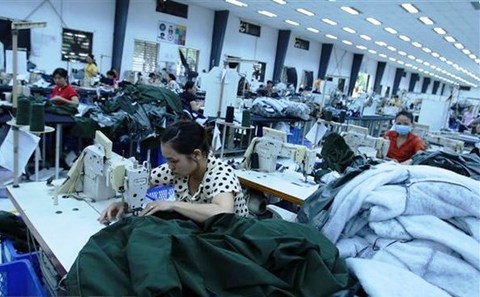
Free trade agreements are expected to bring both opportunities and challenges to Viet Nam’s garment and textile industry. — VNS Photo Van Chau
With its series of recent free trade agreements, Viet Nam is becoming very attractive to foreign businesses, especially in the textile and garment sector.
Herberton Co., Ltd from Singapore recently invested in a textile and garment plant in Nam Dinh Province in the north. The US$ 80 million USD will have a capacity of 25,000 tonnes of yarn of all kinds and 15 million pieces of garments a year, and provide around 3,000 jobs.
Last year the textile industry earned $36 billion from exports, a 16 per cent rise year-on-year, making the country one of the world’s three biggest exporters of textiles and apparel, according to the Viet Nam Textile and Apparel Association (VITAS).
Vu Duc Giang, chairman of VITAS, said the association has this year set a target of $40 billion.
To achieve the target, the association has recommended that enterprises should focus on investment, markets, human resources, and the use of the latest technologies.
The Government needs to continue with administrative reforms and inspections while removing difficulties for businesses, he said.
The association needs to connect enterprises and markets at home and abroad by increasing trade promotions, he said.
The industry is expected to enjoy a trade surplus of $20 billion this year with orders pouring in, he said.
“Many businesses have already received orders for even the entire year.”
Because of increased capital flows into the industry, the country has gradually created a comprehensive textile and apparel supply chain, and the upcoming FTAs are also expected to benefit the industry.
But the FTAs also bring challenges, according to VITAS.
The trade deals Viet Nam has signed all have environmental barriers with higher green standards, which require enterprises to improve not only product quality but also production processes.
A failure to do this could see orders stopped or rejected, especially from major international brands.
Most Vietnamese textile and apparel enterprises do outsourcing and thus rely heavily on orders from other countries.
Customers world-wide are now increasingly environmentally conscious, which has forced global brands to include higher environmental and social standards.
Experts said to maximise the benefits from the FTAs, the country should pay attention to developing the weaving and supporting industries to reduce dependence on imported feedstock.— VNS